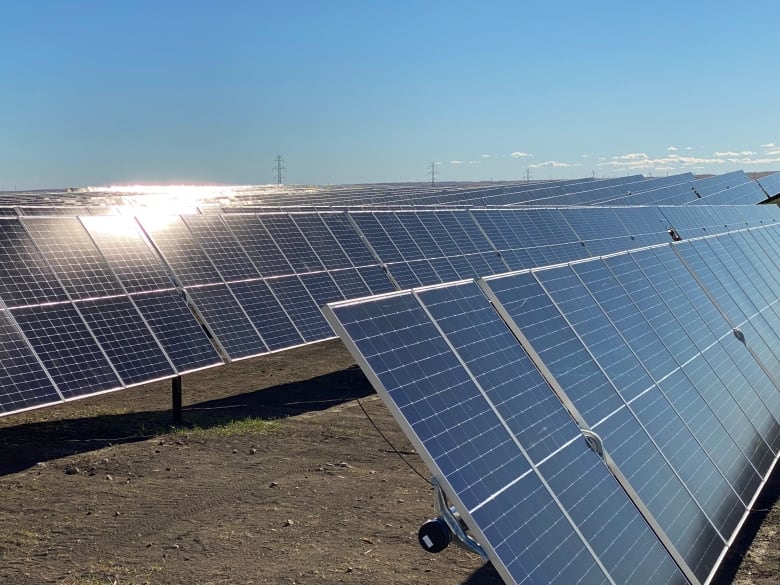Running out of gas in BC underlines our dependence on fossil fuels | CBC Radio
Lineups in flood-battered BC stretching two blocks long at some gas stations — when they had fuel at all — serve as a stark reminder of how integral fossil fuels are in our lives.
The recent heavy rains, flooding and bridge washouts on major highways have left residents on the west coast temporarily cut off from the rest of the country. Trucks and rail services are struggling to bring supplies to the region, and there have been temporary gas shortages in cities such as Victoria, where I live.
When fuel runs out, you are suddenly faced with a new reality and a series of questions: How far can I go on the remaining fuel in my tank? Do I really need to drive? Can I walk or bicycle to my destination? And what about the vehicles that deliver food to the supermarket, or supplies to other stores, emergency vehicles, buses, taxis, airlines — will they stop running?
Questions like those prompted a spurt of panic buying food and long lines at the gas pumps, which quickly drained the filling stations.

Fossil fuels have become so ubiquitous in our lives, we sometimes forget how much we depend on them. As Joni Mitchell wrote, “You don’t know what you’ve got ’til it’s gone.”
Ironically, this need for fuel may be, scientists tell us, partly responsible for the climate disruption that contributed to the fuel shortage. Especially as the storm came on the heels of the COP26 meeting in Glasgow, this may be yet another wake-up call for us to come to terms with the impact of our rising carbon emissions on the climate.
Imagine an idyllic future where our technological lifelines are less dependent on fossil fuels. Maybe fuel supplies will not have to be transported over long distances by truck, train or pipeline because energy will be created locally, perhaps from wind turbines at the edge of town or offshore, a nearby solar farm, tidal generator, geothermal station, small fission or fusion plant, or the roof of your own home and workplace.

It will be an electric world where a robust smart grid can distribute energy from many sources, sending it to where it is needed, and storing it if there is a surplus. We have the opportunity now to design this system to be robust enough to survive the climate disruptions we know are coming. Of course, natural disasters might still create local blackouts, but the system could be designed to be failure tolerant like the internet, which was designed to be robust. If one link fails, there will be other routes to keep energy flowing around the problem spots.
The good news is that all the technology to create this green, multi-sourced energy world already exists. The current situation in B.C. could serve as motivation to implement those technologies on a much larger scale, sooner rather than later.

As a journalist, I have been covering UN climate meetings since the first Rio Earth Summit in 1992. World leaders gather and make grand statements about taking care of the environment and set targets for emission reductions. At the same time, scientists have been warning us about the dangers of a changing climate. Now, 30 years and 26 COP meetings later, emissions continue to rise and dire predictions are coming true.
Climate change is a global issue and a global effort is needed to deal with it. But the COVID crisis demonstrated that we have the ability to focus our efforts to tackle a world problem. At the beginning of the pandemic, we were told to “flatten the curve” of rising numbers of infections and deaths. Governments around the globe stepped in with the support of the scientific community, to understand the virus, develop technology to fight it, and to encourage different social behaviour. Many billions of dollars were spent fighting a global problem.
This is an example that shows we can accomplish great goals in a very short time. If a similar effort was put into flattening the curve of climate change, we could hopefully make fuel shortages a thing of the past.
For all the latest Technology News Click Here
For the latest news and updates, follow us on Google News.

